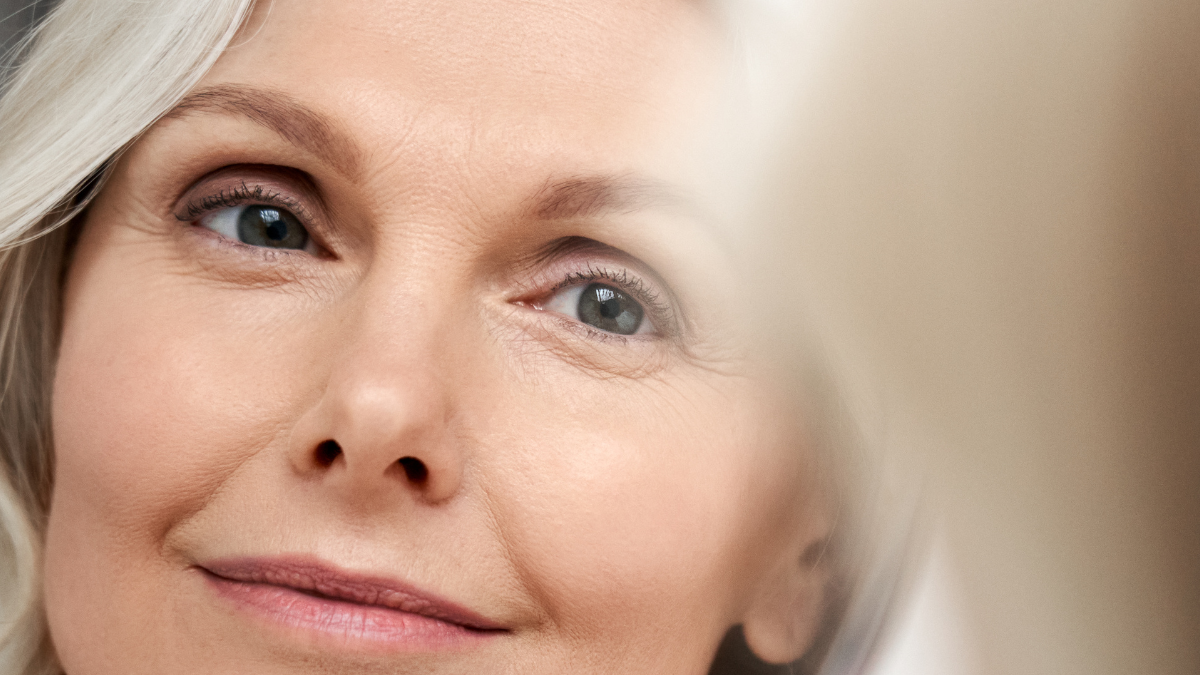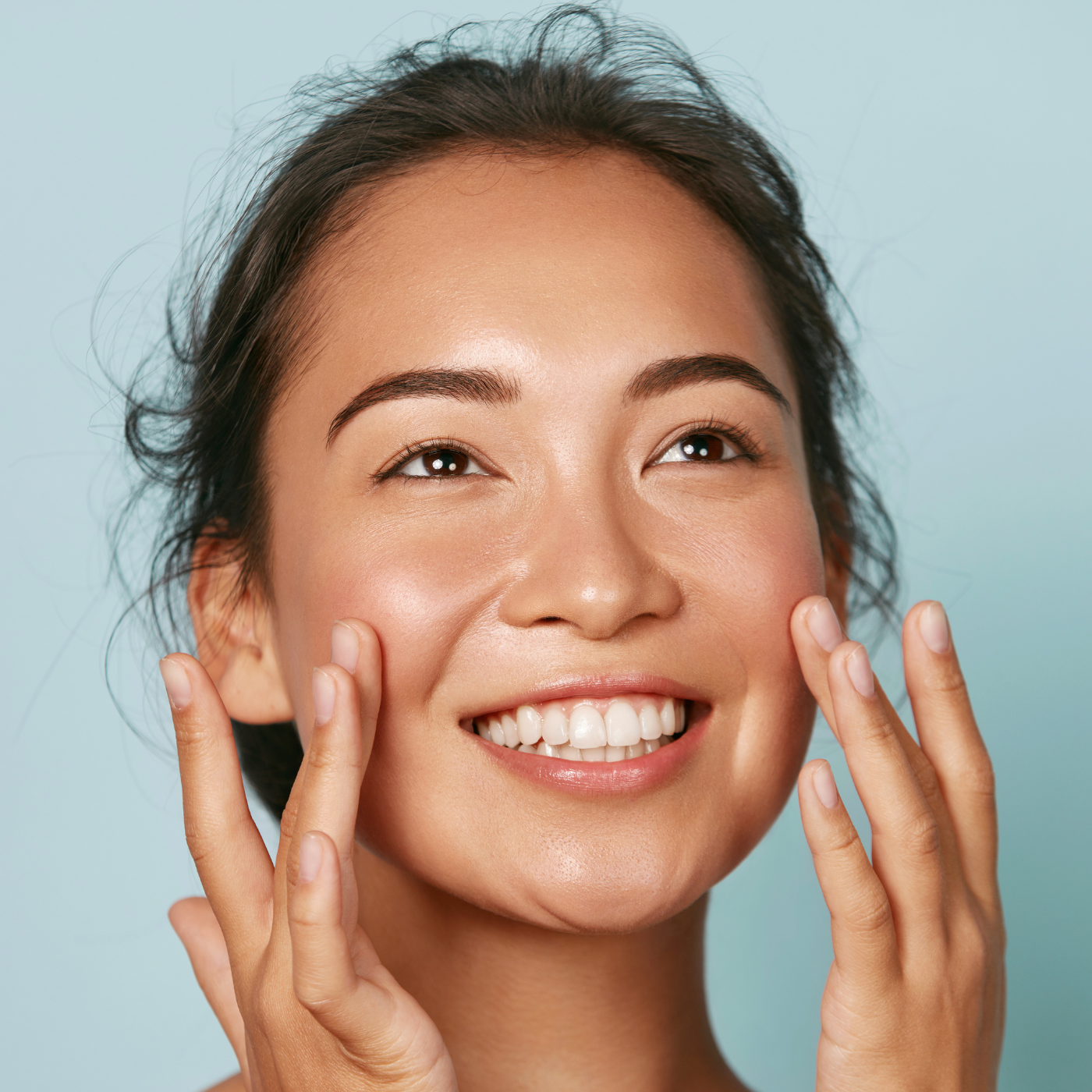Astaxanthin (as-ta-ZAN-thin) - its hard to pronounce but hugely beneficial to so many parts of your body. This potent broad spectrum antioxidant is known to improve skin appearance by protecting it from free radical damage - from the inside out. It's also known to support brain, eye, cardiovascular health, muscle and exercise recovery and more. Read on to learn more about the benefits of amazing Astaxanthin.
What is Astaxanthin?
Astaxanthin is a marine-based antioxidant, often dubbed the “King of the Carotenoids”. Carotenoids are yellow, red, orange and purple pigments and are what give many of the foods we eat their beautiful colours. Carotenoids are beneficial antioxidants that lower inflammation in your body and can protect you from disease and support your immune system. Carotenoid anti-inflammatory properties have also been associated with supporting cardiovascular, skin and eye health amongst many other benefits.
Why are antioxidants important?
Biologically speaking, antioxidants are agile molecules that help to prevent damage caused at the cellular level by unstable, harmful molecules called free radicals. These molecules are constantly being released during metabolism.
Astaxanthin – ‘King of Carotenoids’
Astaxanthin has often been dubbed the “King of Carotenoids” this is because of its reputation as one of the most powerful antioxidants found in nature. Astaxanthin is more than 5 times more powerful than beta-carotene and 6,000 times more potent than vitamin C!
Plus, unlike its carotenoid counterparts, Astaxanthin does not act as a "pro-oxidant" at high concentration.
Other carotenoids, under certain conditions, such as high concentrations, can turn against you, acting as a pro-oxidant rather than an antioxidant, triggering the unwanted outcomes they are supposed to block.
What are the benefits of Astaxanthin?
1. It can support healthy skin aging.
A study found that as an internal beauty pill, natural Astaxanthin can help to improve skin appearance and health from the inside out. Astaxanthin is a super nutrient that acts as a natural internal sun filter, limiting sunburn and skin damage by supporting the skins defences against external damage. It protects our skin from the inside out. Sunlight generates massive amounts of free radicals resulting in wrinkles, mottled pigmentation, accentuated skin furrows, dryness and other visible signs of aging. Astaxanthin protects Collagen fibres and looks after Elastin strands - the skin's framework. This helps the skin to stay flexible, improves skin tone, elasticity and texture.
However, as powerful as Astaxanthin is, it should not replace sunscreen. But adding Astaxanthin into your diet, along with daily sunscreen application, can keep your skin glowing from within.
2. It can support cardiovascular health.
Natural Astaxanthin has been shown to help fight the evil twins Oxidation and Inflammation. Reducing inflammation helps to protect against heart disease arterial walls from being blocked. Astaxanthin can help to neutralize free radicals before they begin to oxidize LDL cholesterol. It can also decrease CRP, the marker for silent inflammation. It has also been shown to decrease overall cholesterol and triglyceride levels in patients with mild hyperlipidemia. It can help to improve blood flow and it may be able to decrease heart rate.
When it comes to heart health, astaxanthin can help support HDL (the good cholesterol) levels, maintain healthy triglyceride and LDL levels (the bad cholesterol), and support healthy blood pressure.
3. It's good for brain health.
As with other organs in our bodies, there are two primary enemies of the brain that can wear it down over time and decrease performance: inflammation and oxidation. Brain tissue is highly susceptible to oxidation because it’s mostly composed of fat — approximately 60%.
Three human clinical studies have indicated that Astaxanthin has great potential for aging brains in areas including forgetfulness, age-related decline in cognitive function, psychomotor function (that’s movement, dexterity and co-ordination) and dementia. In addition, there is growing research showing that Astaxanthin may help improve mood state and reduce mental fatigue.
4. It can help tired eyes.
You probably remember your mother telling you to eat your carrots for better vision. And it turns out, she was actually right.
Again, most diseases of the eye are caused by oxidation and inflammation. Astaxanthin is a powerful antioxidant and a broad-spectrum anti-inflammatory that can get through the blood brain and blood retinal barriers. Cartotenoids, and Astaxanthin in particular, are shown to be an excellent nutrient to protect and support eye health, improve eye fatigue, eye accommodation (adjustment of the lens that allows it to focus), visual acuity, depth perception, blood flow to the retina and maintain healthy visual function.
5. It can support exercise performance and muscle damage
In recent years, Astaxanthin is becoming the supplement of choice for many athletes, particularly endurance athletes. Astaxanthin’s intense antioxidant power and its broad-spectrum anti-inflammatory activity can also make a big difference for athletes in preventing muscle damage and reducing joint and muscle soreness after exercise, therefore allowing for better training with less down time. Recovery after exercise is a huge concern for athletes, and Astaxanthin’s anti-inflammatory activity can help promote quicker recovery and help reduce overuse injuries.
Summary
So, if you’re looking for a super powered broad spectrum antioxidant, Astaxanthin has you covered for combatting free-radical skin stress and support for cardiovascular, cognitive, vision and general cell wellbeing.
Where can I find Astaxanthin?
Lifestream’s Astazan Antioxidant contains Astaxanthin sustainably sourced from red algae, and grown in a 'closed loop' system with fresh, clean water and natural sunlight. Plus, we've added Vitamin E for extra antioxidant support.
Click here to learn more about Lifestream Astazan Antioxidant.




